Award Books by Genre: Carnegie Medal
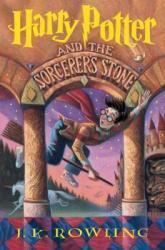
Harry Potter is an exciting twist of magic and book that no matter what you can not put down.
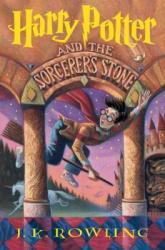
I love this book! It is a fun magical book and is perfect for us kids. J. K. Rowling did an amazing job making the characters and creating the settings and scenes to where you can picture them in your head. It is about a young boy named Harry and his friends named Ronald Weasley and Hermione Granger working as a team to stop to most evil wizard in the history of magic from getting a stone that makes you immortal. This book has some very funny scenes:) I really enjoyed this book and I think you would too!
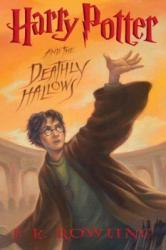
Harry Potter and the Deathly Hallows by J.K. Rowling is one of the most exciting and immersive books I've read. Every page has something to offer and the climax is a fantastic way to end the Harry Potter series. It perfectly answers every question from the beginning, and the ending is phenomenal. The book tells the story in a way that is more detailed than the movies, and is the perfect accompaniment. The descriptive battles and challenges the characters face make this book an epic fantasy and a must-read for everyone.
I recommend this book along with the whole Harry Potter series to any reader.
The whole franchise from the books to the movies appeals to both adults and young readers, and is one of the best fantasy stories ever.
Grade:7
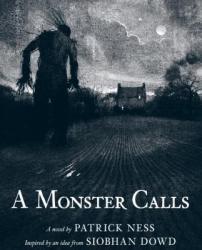
A Monster Calls is an award winning, simple, easy to read book about a very complicated, emotional issue. A young boy, Conor, faces the stark reality of his mother’s terminal illness. He has been suffering from a recurring nightmare and suddenly a new dream-like monster comes to him to see him through this upheaval. It is a short book that will have you emotionally tied up in knots written for young adults, but applicable to all people that are dealing with loss, closure and guilt. Conor’s internal struggle vividly comes to life in the form of the monster in this book. If you’re looking for a quick read that will pull you in and hold you, this is the book for you.
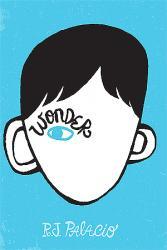
This review contains spoilers.
This is the second time I've read this book. I got more out of it this time. It helped to google Auggie's condition to see what he would have looked like. There were a few chapters about friendship, betrayal, and bullying, that were so powerful I got misty-eyed. I liked that the school ultimately accepted him and loved him. I also liked Via's friend's storyline. Perhaps my favorite part was at the end when he got the award and said that they saw something exceptional, but he just saw himself as a normal kid. But hey, he'd take the award if they wanted to give it to him. :-)
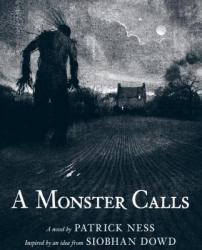
Patrick Ness keeps writing books that resonate with me. His work tends to focus on emotional journeys with characters either growing from a painful experience or coming to accept something about themselves. This book is no different. At a glance, this book appears to be a horror story. "A Monster Calls" is a cryptic title and the description implies a monster is after a teenage boy. The story follows Conor, a boy who has nightmares about one monster but is visited by another. The other monster wants to tell him 3 true stories and, when the third story is done, Conor must tell it a 4th...or else the reality Conor fears will happen.
In actuality, this book is not scary - at least not in a horror sense. It contains a few unsettling moments and any scary moments come from human fears we carry with us throughout our lives - fears of loss or change or the unknown. It examines them in such a way that is poetic and compassionate, particularly as it relates to grief. Ultimately this book is about learning to cope - it just happens to explore this concept with monsters, nightmares, and a tree. This book made me cry at work - which is a good thing, but you know...kind of awkward nonetheless. Would recommend to lovers of reality based fiction, modern faerie-tales (in a way), unsettling stories, or emotional stories.
And seriously, have the tissues at the ready.
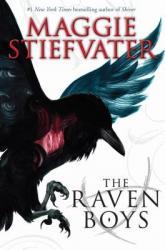
Blue Sargent is not a psychic. Her mom is a psychic. Her aunts are all psychics. But Blue has another skill - she can amplify psychic power. So every year on St. Mark's Eve, she accompanies one of the "real" psychics to
greet the ghosts of the people who will die in the next year. Usually, she sees nothing. But this year, she sees the ghost of a boy: Gansey. Later, Blue and Gansey have a meet-not-cute, and Blue finds herself swept along with Gansey and his friends Noah, Adam and Ronan on an epic quest to find a long lost Welsh king...because Blue thinks that this king might be the only thing that can save Gansey.
First, I love the way Stiefvater writes. She manages to imbue whimsy and/or something otherworldly (and often slightly sinister) into almost every paragraph, and her descriptions are often at once hilarious and spot on. For example:
April was a bad time for the Aglionby boys; as it warmed up, the convertibles appeared bearing boys in shorts so tacky that only the rich would dare to wear them.
or
Ronan kept staring at Whelk. He was good at staring. There was something about his stare that took something from the other person.
Great, unique descriptions. I just love her writing and her ability to make the reader feel like they've known the characters forever.
On top of that, the plot is simply and uniquely marvelous. I had never heard of Glendower (our long lost Welsh king), and this story felt really fresh, even though I was reading it for the third time. A colleague thought it was boring, and I will concede that it gets off to a bit of a slow start to allow
for world-building and character development, but I DARE you to try to read the last 100 pages or so in more than one sitting.
It's just soooooooooooooooo goooooooooooooooooooooooooood.
5 unreserved stars. J'dore.
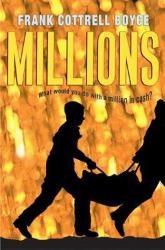
This book is about a very Christian boy who stumbles upon a gift from God. But was this gift truly a from God? Soon everyone wants a piece of it and chaos breaks out. I liked that a boy and his brother want to live their lives to the fullest, as many people wish to achieve. I picked this book because Frank Cottrell-Boyce has very many great books for teens around my age. I enjoyed that the main characters had true human qualities that not many people possess. I did not enjoy that the characters were rarely serious. This book surprised me around every corner, I could not predict what would happen next. I can relate to some of the characters because they love God. This is by far one of the best books I have read all year!
Reviewer Grade: 8
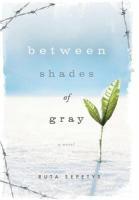
This book really made me want to cry. I loved how this entire story revolves around a 12 year old girl who is forced to move from place to place. I could relate to the protagonist because she has to make tough choices and she had to make sacrifices for the greater good. This story will cause sadness and also create a spark of hope. This is a beautifully written story and is perfect for any age.
Reviewer Grade: 7